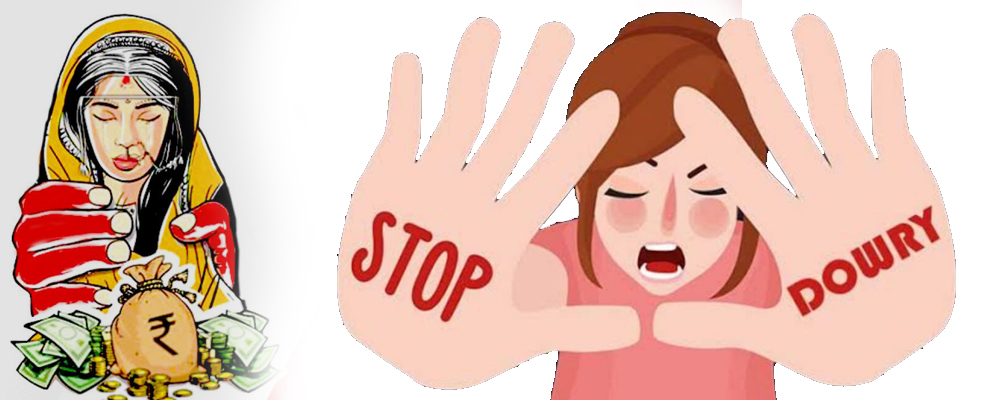Dowry Death:
The Indian Penal Code’s definition of dowry death is found in section 304B (1), which reads: “Where the death of a woman is caused by any burns or bodily injury or occurs, otherwise than under normal circumstances, within seven years of her marriage and it is shown that soon before her death, she was subjected to cruelty or harassment by her husband or any relative of her husband for, or in connection with, any demand for dowry, such death shall be called “dowry death,” and such husband or relative shall be deemed to have caused her death.”
Statistics:
Dowry is an all India complication, India reports the highest number of dowry deaths every year in spite of stringent laws in place. India reported 7.1 thousand dowry deaths in 2019. This report was submitted by the National Crime Records Bureau and it was mentioned that every hour a woman succumbs to dowry death with continuous increase in figures.
Need A Legal Advice
The internet is not a lawyer and neither are you. Talk to a real lawyer about your legal issue

Judicial System:
Various legislations have been framed in order to keep an eye on the evil of dowry. Stringent laws and Acts such as; Section 304B of IPC, Section 406 of IPC, Dowry Prohibition Act, 1961 are framed. Additionally, for protection of women, Domestic Violence Act, 2005 is enacted which specifically does not deal with dowry but with assault or torture if any woman is harassed in her matrimonial home.
The Honourable Supreme Court ruled in the precedent-setting case of Pawan Kumar v. State of Haryana that the following elements together constitute Section 304-B IPC:
(1) the death of a woman must be caused by burns, bodily harm, or an unnatural circumstance;
(2) it must occur within seven years of the wedding;
(3) it must be proven that just before she passed away, her husband or any of his relatives subjected her to cruelty or harassment; and
(4) the cruelty or harassment must be related to the demand for dowry.
Till date giving and taking of dowry is accepted norm in the society. People are used to this practice under the name of exchange of cash and gifts and all the above laws have lost significance in our society. 90’s data shows yearly increase in bridal death with countless deaths unreported.
*In Kerala19 year old girl named Suchitra on June 21,2021 committed suicide because she was harassed by her in-laws for dowry within just 3 months of marriage.
In Kamesh Panjiyar v. State of Bihar, the Court approached this practically. The victim was found lying on the verandah of the appellant’s house with blood dribbling from her mouth and evident marks of violence on her neck. It appeared that the victim had been murdered by strangulation. The Court favoured the opinion of the doctor, the evidence recovered and the testimony of the witnesses to hold that the death of the woman has not been under normal circumstances as expressed in Section 304-B, and hence it was a case of “dowry death”.
Non-Bailable and Cognizable Offence:
Dowry death is considered a non-bailable and cognizable offence. Dowry Death is serious in nature and bail cannot be granted in general to the accused and police can arrest the accused committing heinous crimes without any warrant.
The police Officer while arresting any person without warrant shall be satisfied with the complaint registered against the person and provisions for Section 41 CrPC shall be fulfilled.
This can be stopped by the youth of this country by not supporting such evils and bringing social revolution to end this menace. Society needs to awaken its consciousness, it cannot solely be curtailed by police and the legal system, else legal literacy programs can be initiated where woman shall be made aware of their rights
Lead India guides you through the process, laws and solutions if you have been a victim of this evil. We can aid and assist you in receiving justice from the court of law as there is no shortcut to get away from this social evil.





 Talk to a Lawyer
Talk to a Lawyer